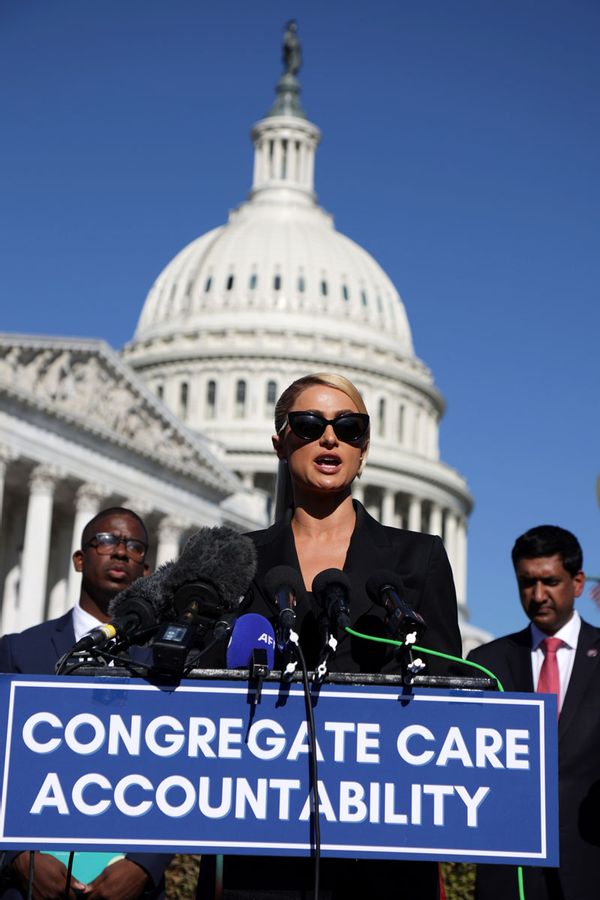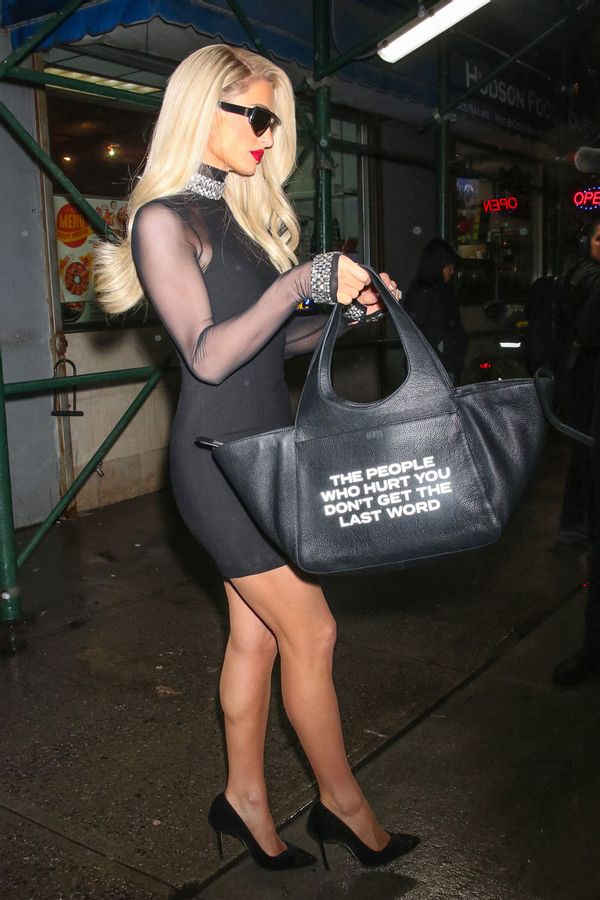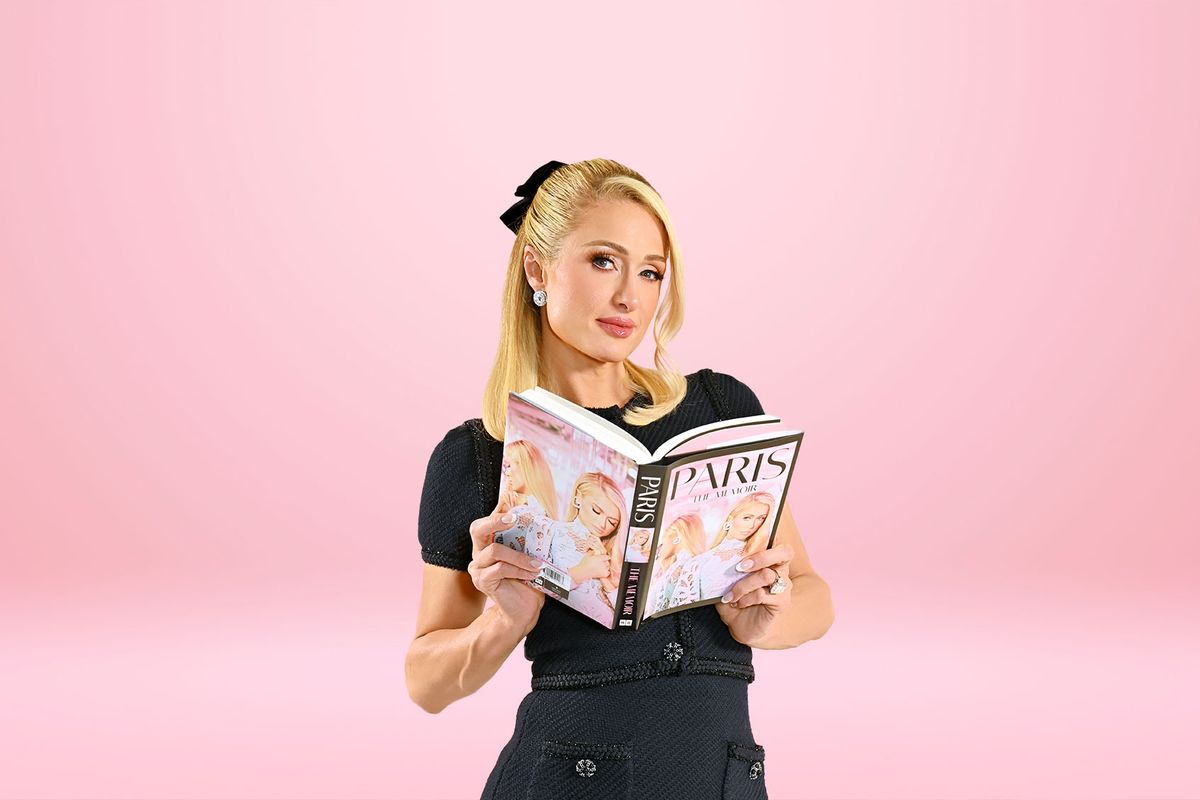If you predicted back in the velour hoodied early aughts that Paris Hilton would one day write a moving, brave and often very funny account of her life and of the era, congratulations, your day has arrived. If, like the rest of us, you couldn't begin to imagine just how much was going on underneath that Von Dutch hat, let the pioneering influencer take you by surprise. Hilton's "Paris: The Memoir" is the best book since Jennette McCurdy's "I'm Glad My Mom Died" to explore the dark side of growing up in the spotlight and building an authentic life from the ashes of an unorthodox youth.
Hilton, who recently welcomed her first child, joined me on a recent episode of "Salon Talks." In the candid conversation, we discussed why Hilton says ADHD is her "superpower" secret of success, why she's speaking out about her deepest traumas and her ongoing campaign to make the "troubled teen" industry a thing of the past. Watch Hilton on "Salon Talks" here or read our conversation below.
The following interview has been lightly edited for clarity and length.
You start early on in the book by describing what it feels like to have ADHD. You say it's your "superpower." ADHD is so often misdiagnosed, especially for girls and women. What was your experience like finally getting that diagnosis, and what do other people need to know so that they can recognize it and live with it?
I feel that there's such a stigma behind it, and a lot of people aren't aware of so many good things about it. In my career, I've always been ahead of my time, thinking outside the box and being an innovator and doing things and taking these risks. I really attribute that to my ADHD because I see it as a superpower. I feel that if you harness it in the right way, so much is possible. When I was a teenager, no one was talking about this. It's an important thing for people to realize that you can become successful, and you can really focus and do big things in life.
"I find it so empowering to hold these people accountable for what they did to me because they stole my childhood."
This book is your second big arrival. You just recently welcomed your son. Congratulations.
I'm so in love with him.
You have talked about everything you went through to have a family and become a mother. I can only imagine how much it must mean to be facing this moment right now.
It means the world to me. I just feel so blessed, and he is everything to me. My heart is just bursting with so much love.
In just the short time since you have had this little boy in your life, has it changed how you think about your own parents and how they raised you?
Definitely. Now that I'm a mom, I feel so protective of my little boy. I just want to protect him from this sometimes scary world, so I can completely understand why my parents were very protective of me as a teenager. [My parents and I] have become so close, especially in the past couple of years since I've told my story. Our relationship has really healed from being able to speak about everything.
Let's talk about the "everything." You spent a couple of years in your teenage life in Provo Canyon. It calls itself a school. What would you call it?
I would call it a torture place. I don't know how they even can say that they're a school because of the way they are so incredibly abusive and just the horrific things that happen inside of there. The people who work there should be nowhere near children. It's heartbreaking to my family because they had no idea. They thought they were sending me to a normal boarding school because these places have such deceptive marketing. [They] have these brochures and websites with stock photos of children smiling and rainbows and riding horses. It's the complete opposite once you're in there.
It's just been extremely painful to talk about, but it's so important because I know that there are children who are locked up in these places right now and they have no voice. That's why I'm out here advocating for them and for their rights.
 Actress and model Paris Hilton speaks during a news conference outside the U.S. Capitol October 20, 2021 in Washington, DC. (Alex Wong/Getty Images)You have been a very strong agent for change, particularly in the state of Utah. You say in the book that people need to understand that this is happening now, and it is happening to children. Tell me how we're getting away with this in this country right now?
Actress and model Paris Hilton speaks during a news conference outside the U.S. Capitol October 20, 2021 in Washington, DC. (Alex Wong/Getty Images)You have been a very strong agent for change, particularly in the state of Utah. You say in the book that people need to understand that this is happening now, and it is happening to children. Tell me how we're getting away with this in this country right now?
This has been happening since the 1960s, and I believe they've gotten away with it for so long because the children haven't been believed. The things that happen in these places are like something out of a horror film. It just breaks my heart that it's still happening today. Children have died in the name of treatment.
"The things that happen in these places are like something out of a horror film."
Ever since I told my story and my documentary, survivors have come forward and told their stories — and they're finally being believed now. Just these past couple of years, with the help of myself and so many other survivors, we've made so much change and such a difference and have already changed laws in eight states — as well as all the way over in Ireland. I'm going to be going back to Washington in April to introduce our bill, and we already have bipartisan support. I'm just praying and hoping that everyone makes the right decision because no more children should be abused in these places.
I want to go forward 15 years in the future. Maybe your son is sneaking out at night, maybe he's not talking to you. You're frustrated. You're at the end of your rope, much like your mom has said she felt with you. What are you going to do for him?
I'm just going to be there for him and support him and love him so much and have him feel that he can come and talk to me about anything. And also understand that kids do rebel at that age, and it is normal. So, if he does sneak out, I'll be like, "OK, you got this from your mom." I was a rebel, I think, because my parents were so strict with me. I feel like I will be strict because I'm going to be so protective, but I'm also going to be really understanding because I know how it is to be a teenager.
 Paris Hilton is seen on March 13, 2023 in New York City. (MediaPunch/Bauer-Griffin/GC Images/Getty Images)
Paris Hilton is seen on March 13, 2023 in New York City. (MediaPunch/Bauer-Griffin/GC Images/Getty Images)
You had strict parents. You were in a place where all of your freedom was taken away from you, where you were physically and psychologically broken down. When you got out and you were able to have freedom, how did you take control of your life again?
I was just so traumatized from what I experienced and endured that I locked it out of my memory. I made a promise to myself that I'm not going to talk about this with anyone. This is not part of my story. I just wanted to act like it didn't happen.
"Fighting for change has been so extremely healing for myself, my family and people all around the world."
I've spoken to so many other survivors since, and they've done the same thing because you just want to put that all behind you. Now, I find it so empowering to hold these people accountable for what they did to me because they stole my childhood, and they're continuing to steal the childhood of so many other innocent children. Fighting for change has just been so extremely healing for myself, my family and people all around the world, so I'm going to continue telling my story.
I recently read Prince Harry's memoir, "Spare." There are similarities in the stories about people who are born into privilege, wealth and fame, and yet endure things that are unimaginable. All of that fame and privilege does not protect you from trauma, abuse or mental health issues. What do you want people to know when they see people living these glamorous lives on social media?
I feel that they should never judge a book by its cover, and that life is not perfect. On social media, everyone tries to project this perfect fantasy life, but I know from personal experience and from my friends who are in this industry that that's not always the case — and people go through really hard things.
I think it's amazing now that people are finally talking about mental health and coming forward and telling their stories, especially people who have a platform. I really just commend them for their bravery because it's a hard thing, but I also think it's so important for people to come through and tell their stories so that other people don't feel so alone.
Watch more
"Salon Talks" about memoirs



Shares